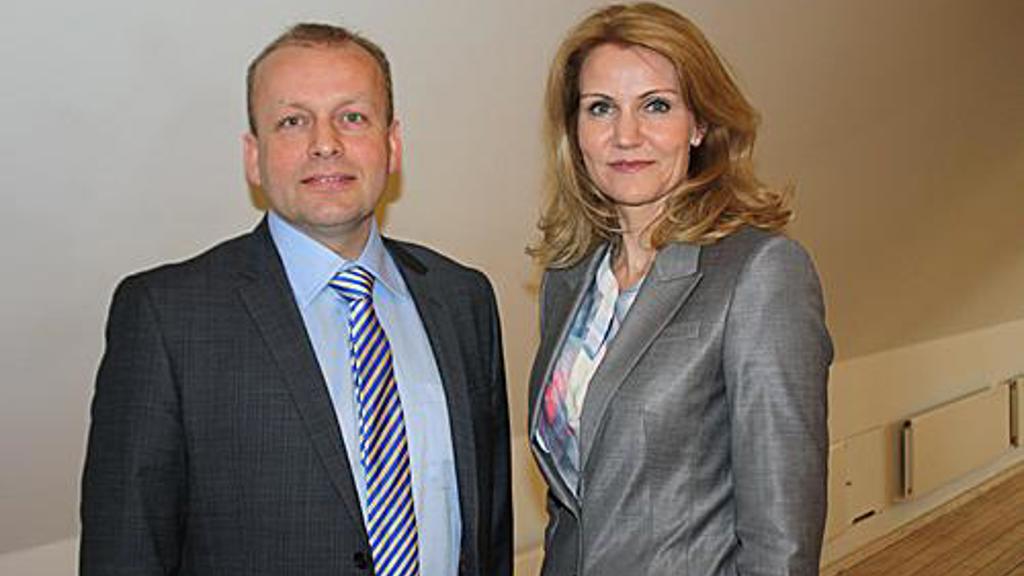
Prime Minister, Excellences, ladies and gentlemen,
I want to welcome you all and also thank you for taking the time to join us here today. It is a pleasure for me to address such a distinguished gathering and to have this chance to tell you a little about some of the political priorities of my Government.
The Faroe Islands are an island nation in the middle of the Northeast Atlantic with an economy heavily dependent on fisheries, and a population just under 50,000. This makes us very vulnerable to dramatic changes in the global economy. But we have managed to avoid the most extreme effects of the global financial crisis in recent years. In fact, over the past few years the Faroes have experienced a 7 per cent growth in the GNP. This is one of the highest in Europe. Our aim is to continue working for economic growth in order to secure the future welfare of our people.
The challenge my Government is facing today is to find the best ways to maintain our modern welfare system and the high standard of living we enjoy, while also reducing the overall budget. Even with our positive growth figures, we are still battling with an annual deficit. Our objective is to have a balanced budget by 2016, through a series of focussed policy measures and structural reforms.
Excellences, ladies and gentlemen,
The economic foundation of Faroese society is the North Atlantic itself, which we so very much depend on and care deeply about. The North Atlantic Ocean is the basis for our major industries and it is our connection to our neighbours. It is our life and our home. Faroese government and industry play an important role in maritime affairs and fisheries in the North Atlantic region. Faroese researchers are also making important contributions to international research in key areas, including the effects of climate change in the Faroese area and across the circumpolar North.
Some of the most important changes are happening in the seas that tie us together. These same seas and their powerful currents have a fundamental role in regulating the global climate and maintaining productive levels of the marine resources that are so vital for our economy.
We are already seeing clear changes in the distribution of major fish stocks – including the important and very valuable pelagic fish stocks that we share with our neighbors in the region. These changes are creating challenges and new realities for national and regional fisheries management, challenges we have to deal with responsibly and on an equal footing with other responsible fisheries nations in the Northeast Atlantic.
Changes in the Artic are also opening up new shipping routes across the circumpolar North. We are already seeing heavier shipping activities around the Faroes, both industrial cargo transport as well as a growth in the number and size of cruise ships. We have promising prospects for future offshore oil production in the Faroese area, and we have developed a strong framework for present and future activities with high environmental and safety standards at the forefront.
With these new and emerging opportunities, we need to take a closer look at how we can best use our strategic position in the West Nordic and North Atlantic region. In addition to the Kingdom of Denmark Strategy for the Arctic, which forms part of our policy, my Government has decided to prepare a Strategic Assessment with respect to Arctic challenges. Our aim is to answer how we can best use our competitive advantage as a small island nation with a long and intimate relationship with the sea and a well-educated workforce with a globalised outlook.
The Faroe Islands have a lot more to offer than most people assume is possible from such a small country. In the private sector we have a high level of innovation inspired by cutting edge business and research expertise. This is especially the case in the marine and maritime sectors, but also more and more in IT and other communication-based and creative industries. Furthermore, the banking and insurance sectors have shown an interest in expanding their activities beyond the Faroese territory. The Faroese people are, after all, islanders, and this gives us a keen sense of where we are in relation to the rest of the world, and makes us extremely flexible and adaptable.
When it comes to Faroese culture and creativity, we are very proud of the enormous energy and quality in areas such as music, literature, painting and fashion design. A new generation of artistic talent is transforming traditional Faroese elements into modern 21st century creations in ways that often make the international community stop in their tracks, with a mixture of surprise and admiration.
But don’t just take it from me. If you haven’t had the chance already, you should take the time to visit the Faroes and experience our unique lifestyle and environment first-hand. We have recently upgraded and expanded our international air transport infrastructure, with an extended runway and a new addition to Atlantic Airways fleet. This will create even more and better opportunities for growth in business and tourism. The Faroe Islands are now better connected than ever to the rest of the world.
But state-of-the-art infrastructure is meaningless if we don’t use it to maintain and build strong new relations with our international partners.
Prime Minister, Excellences, ladies and gentlemen
Personal contacts and interaction are the main point of events like this one. They are so important for strengthening bonds of friendship and understanding between our countries, businesses and organisations. So I don’t want to take up too much more of your time.
Thank you all once again for your interest and attention and for sharing this special occasion with us here today.
